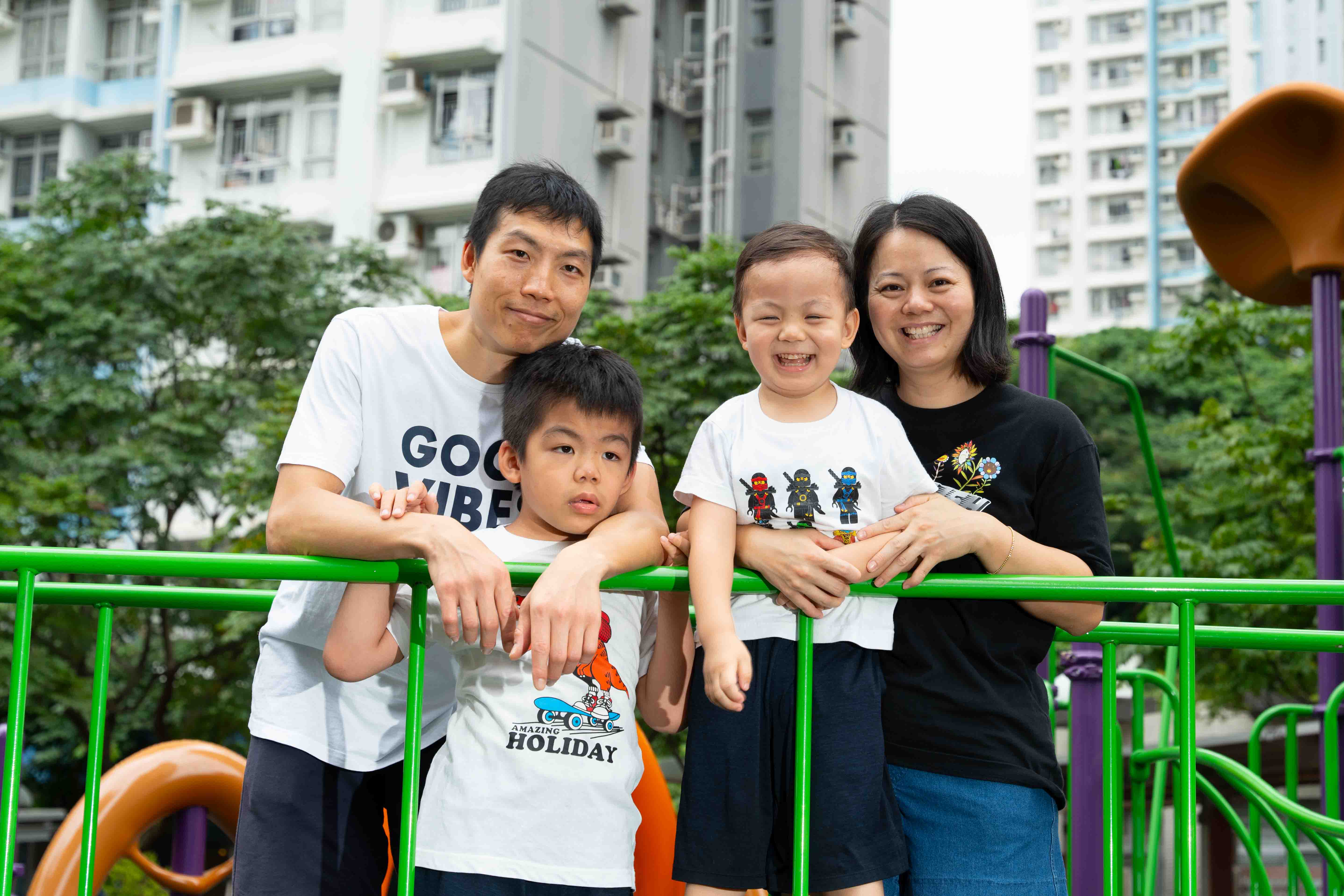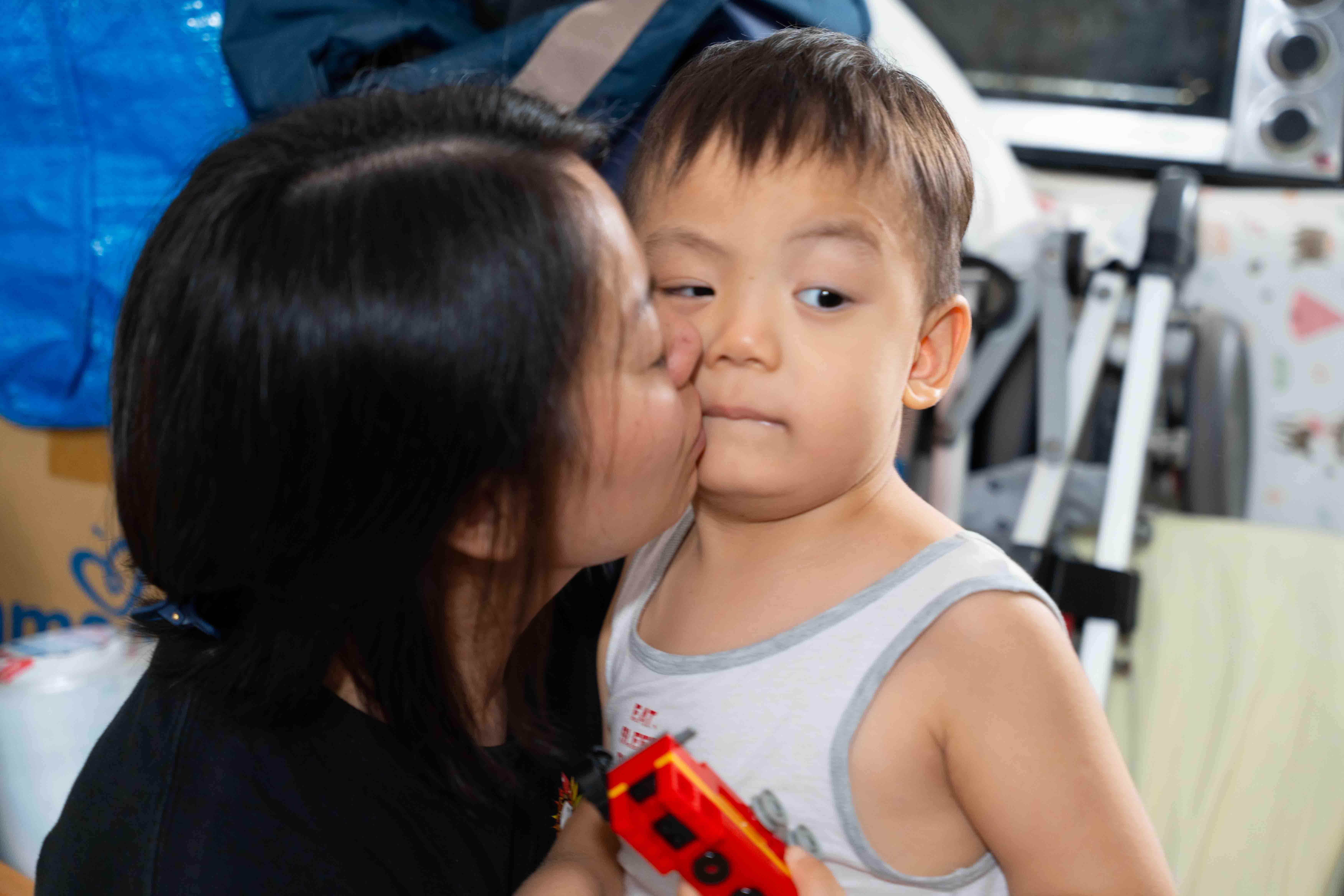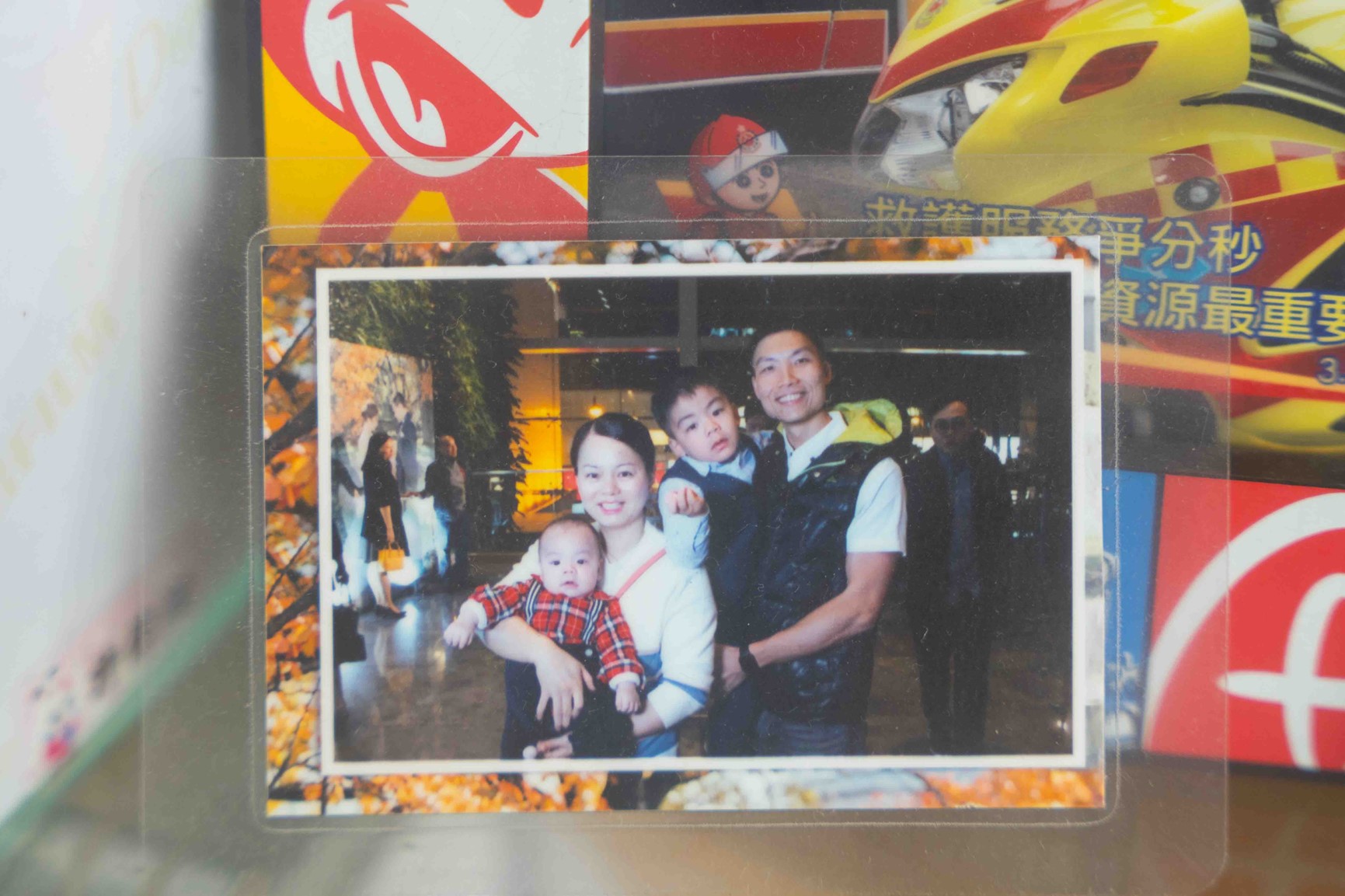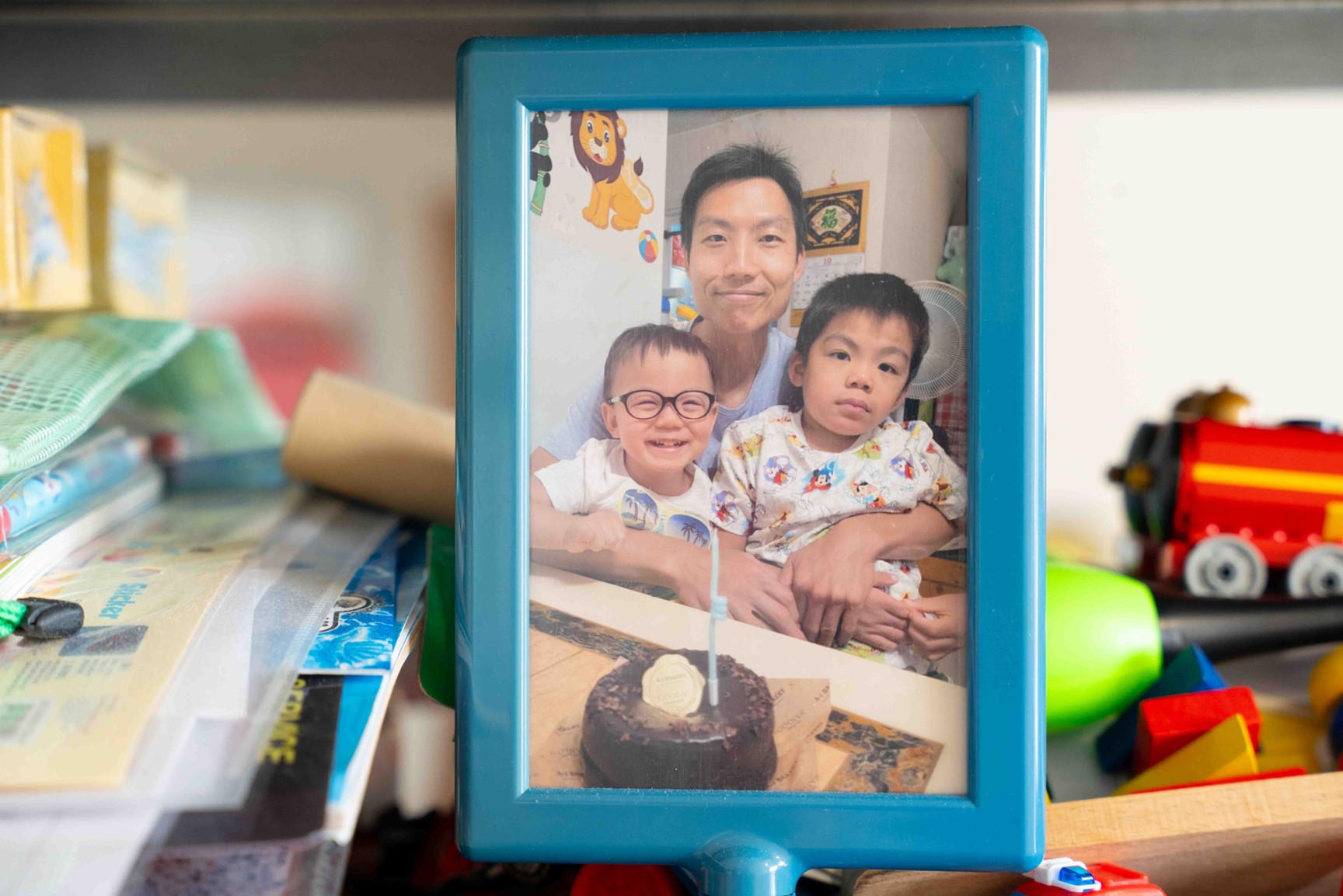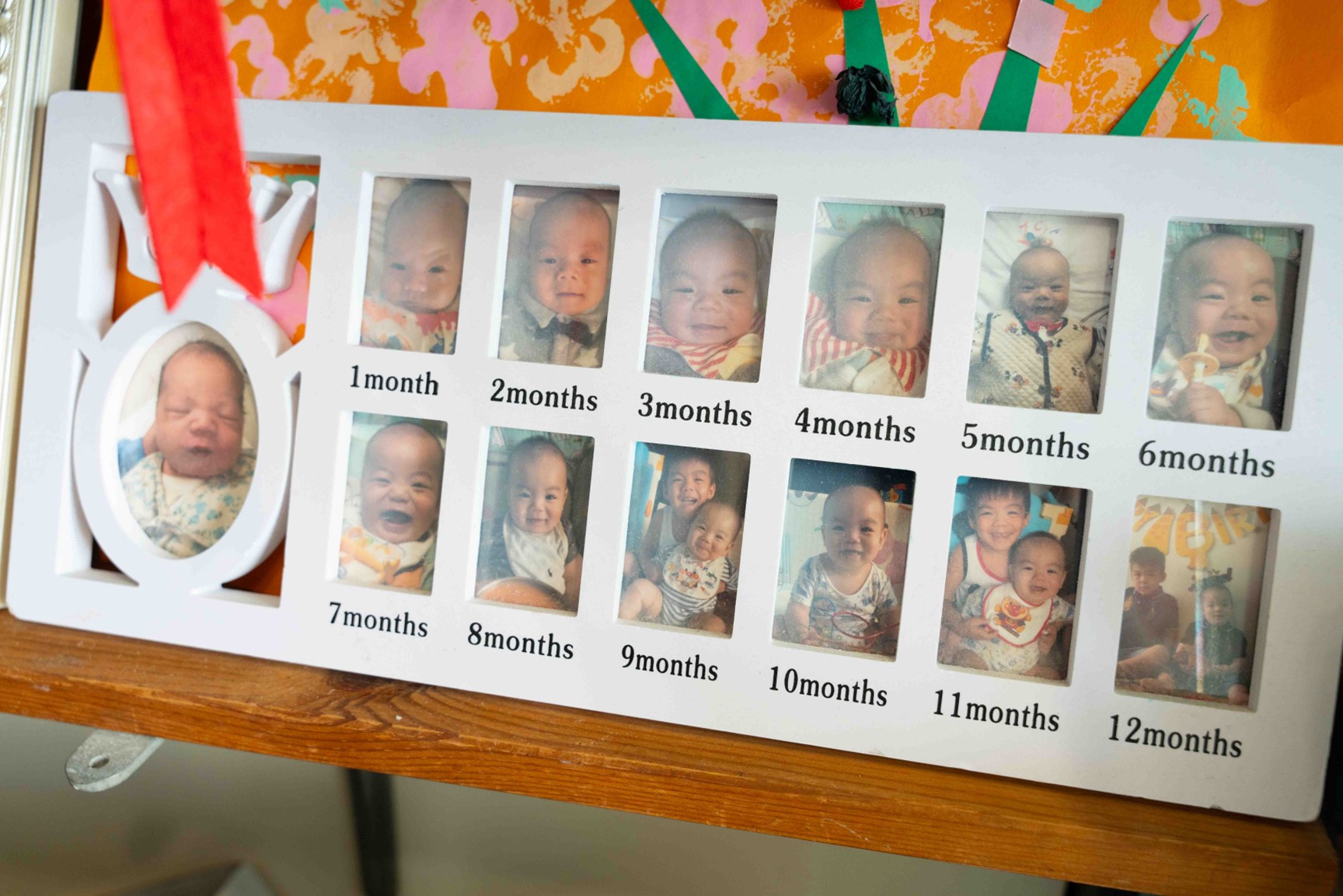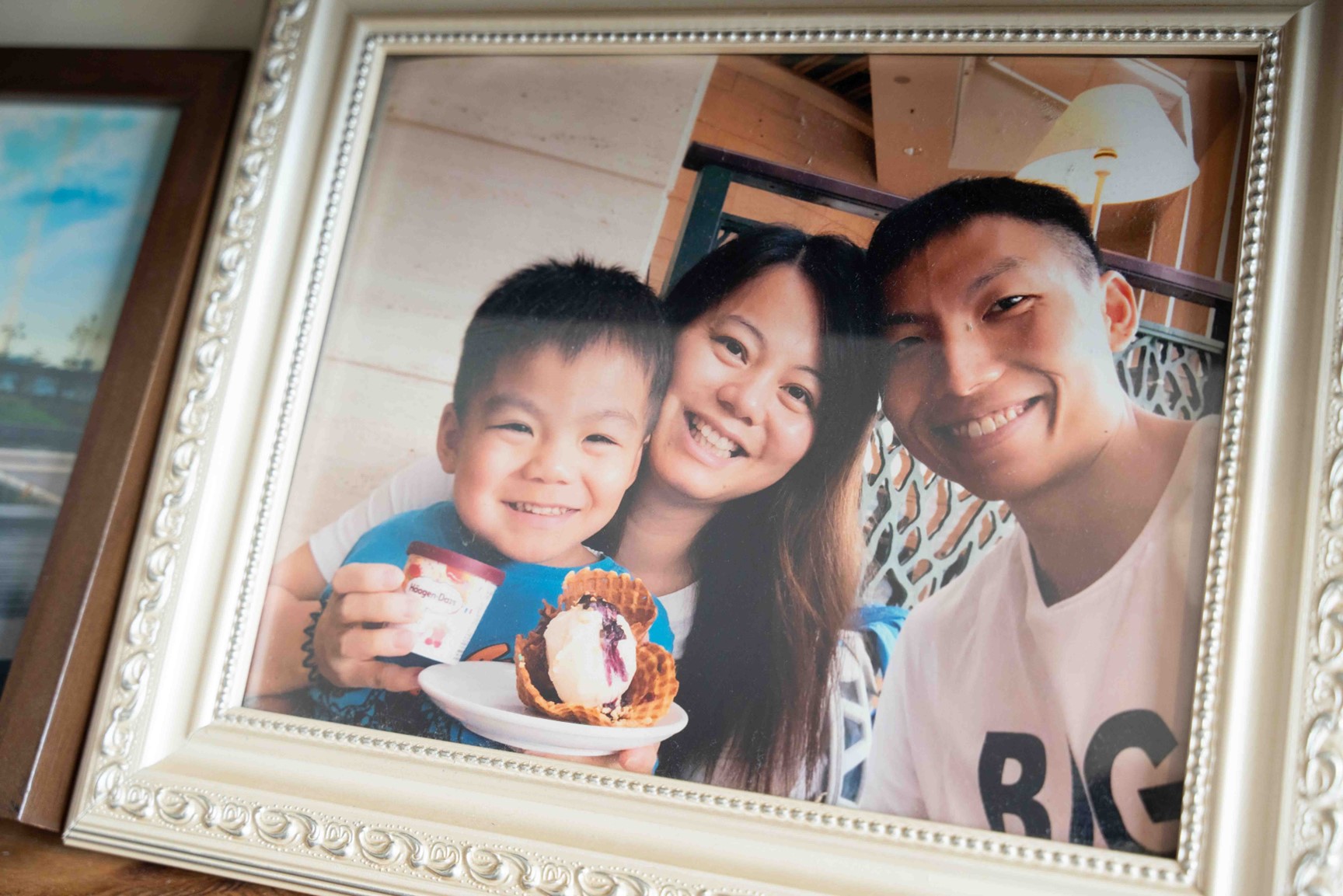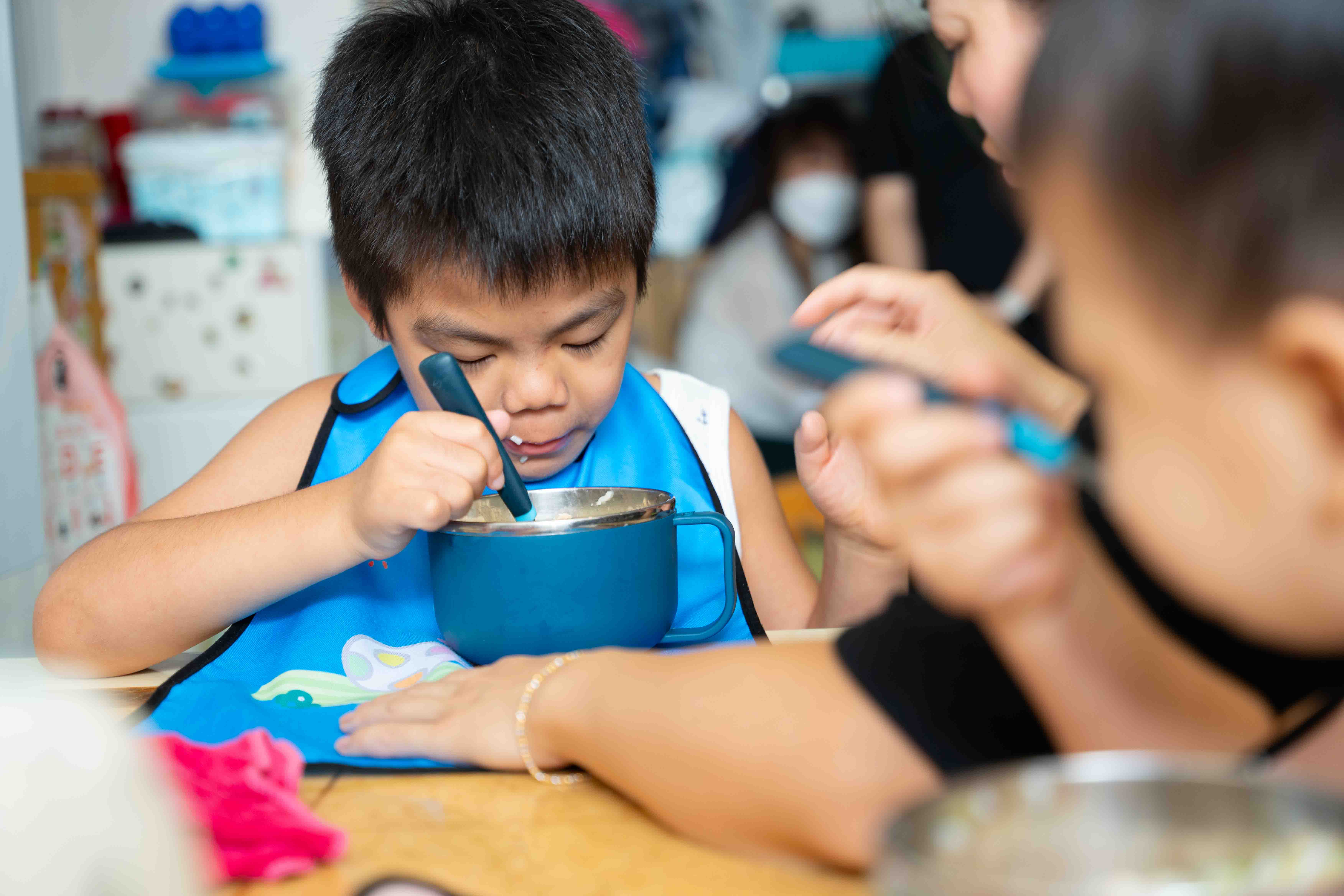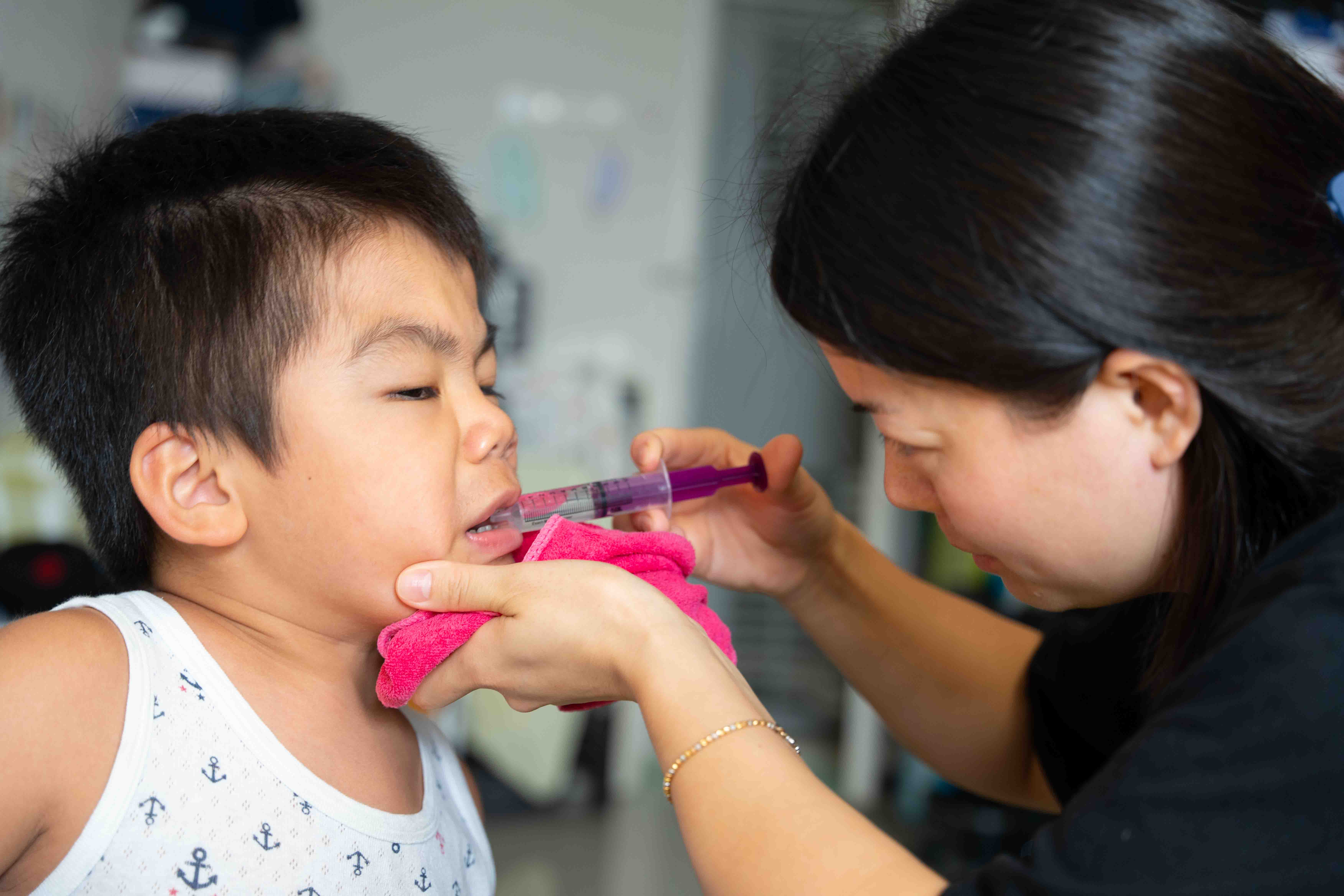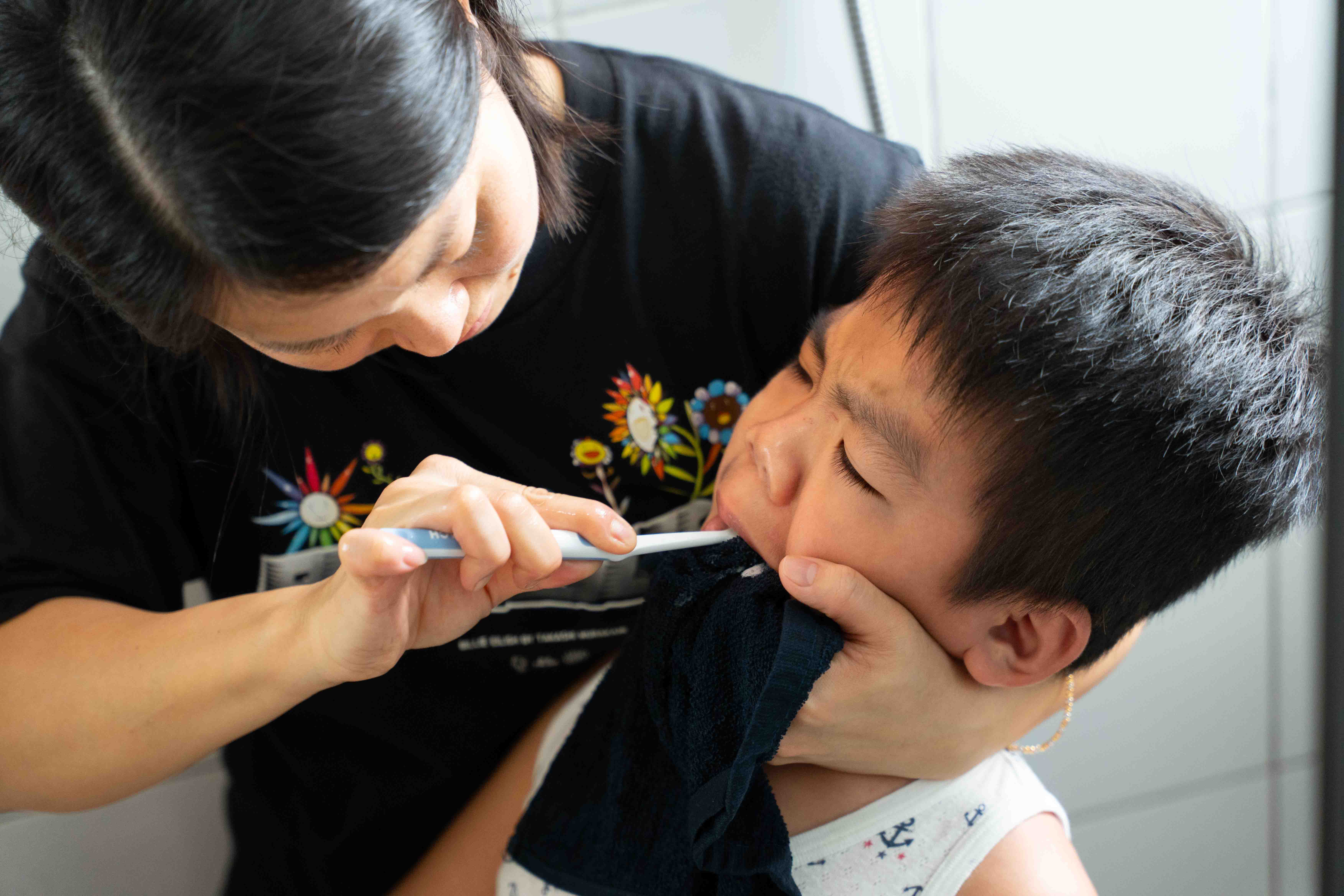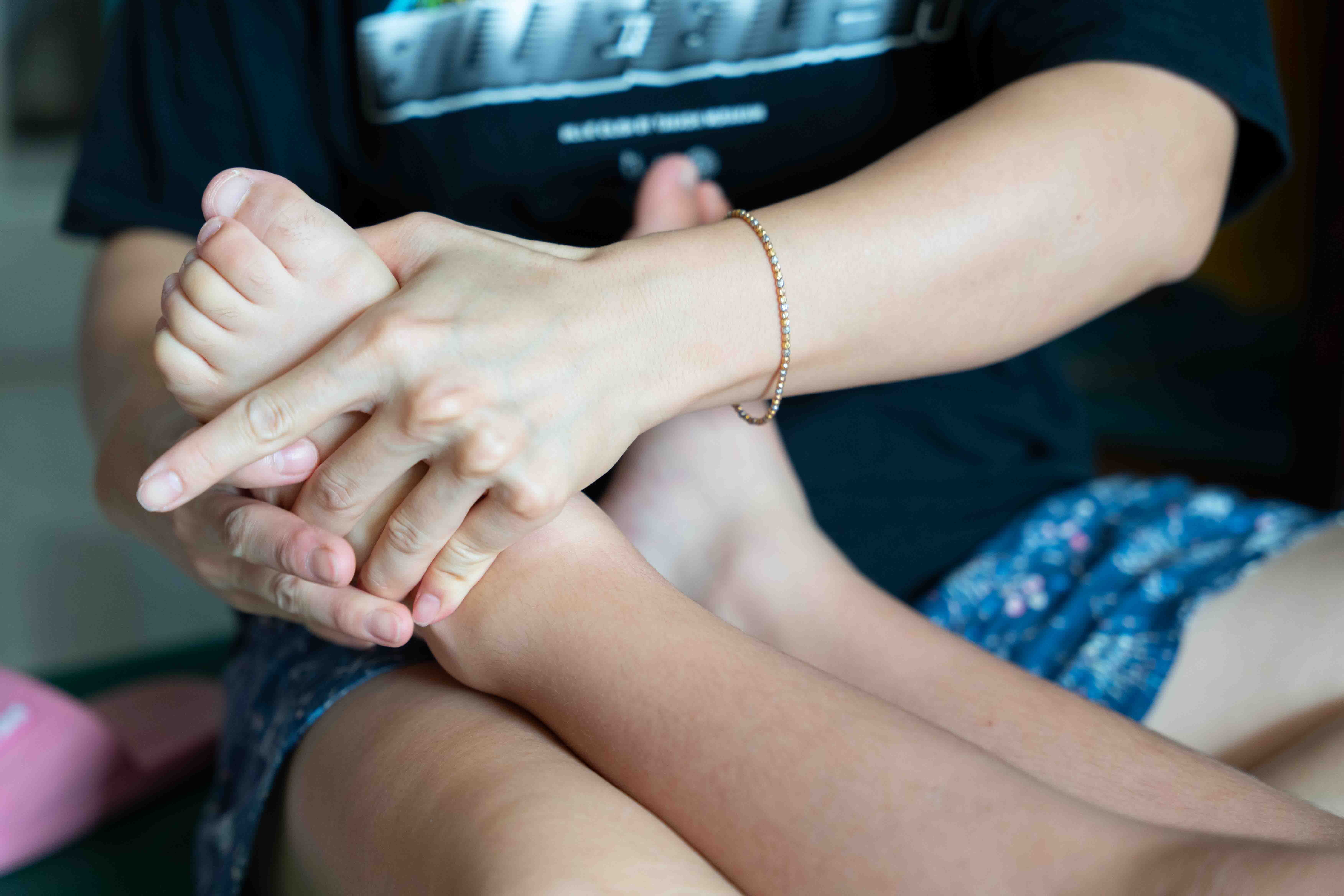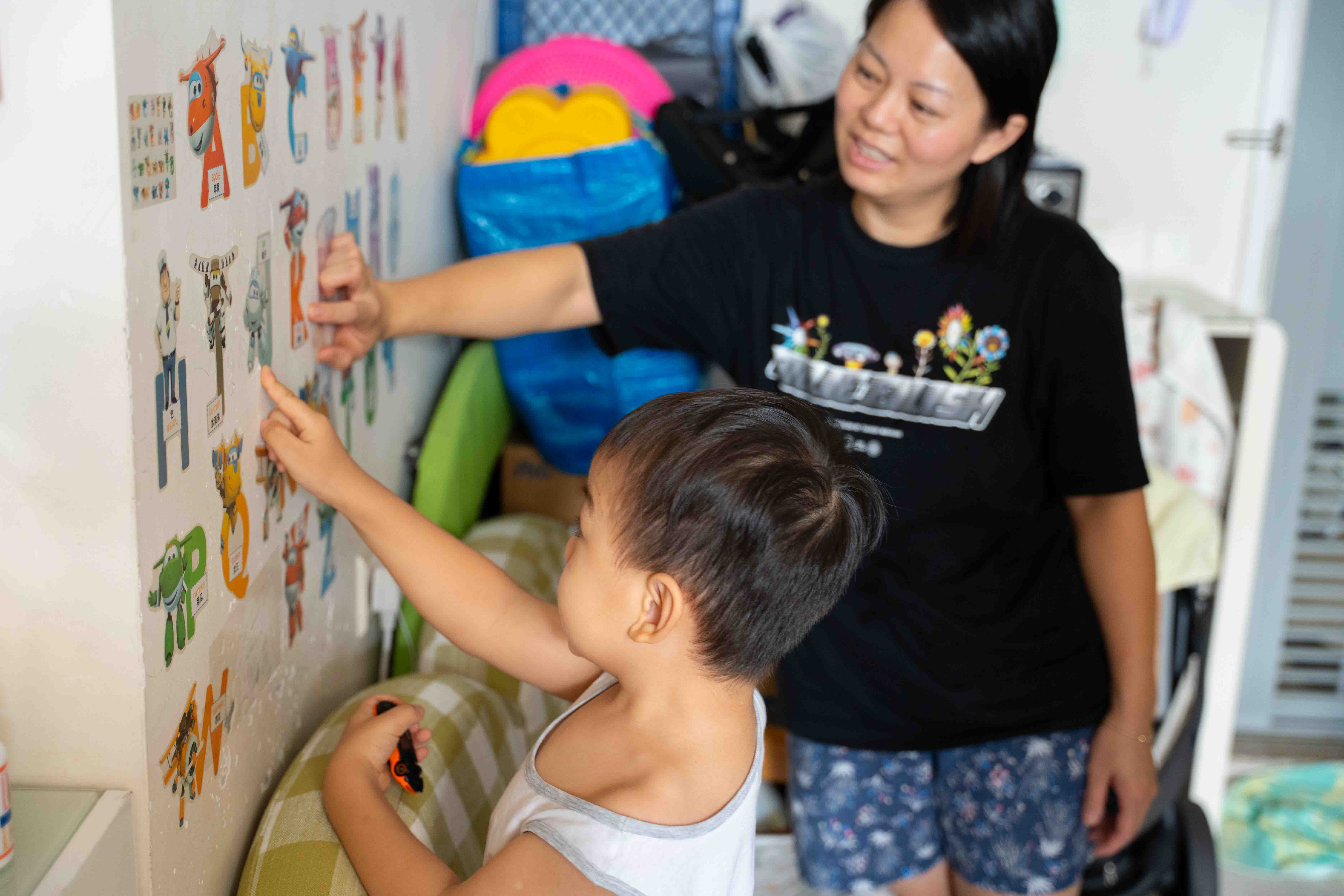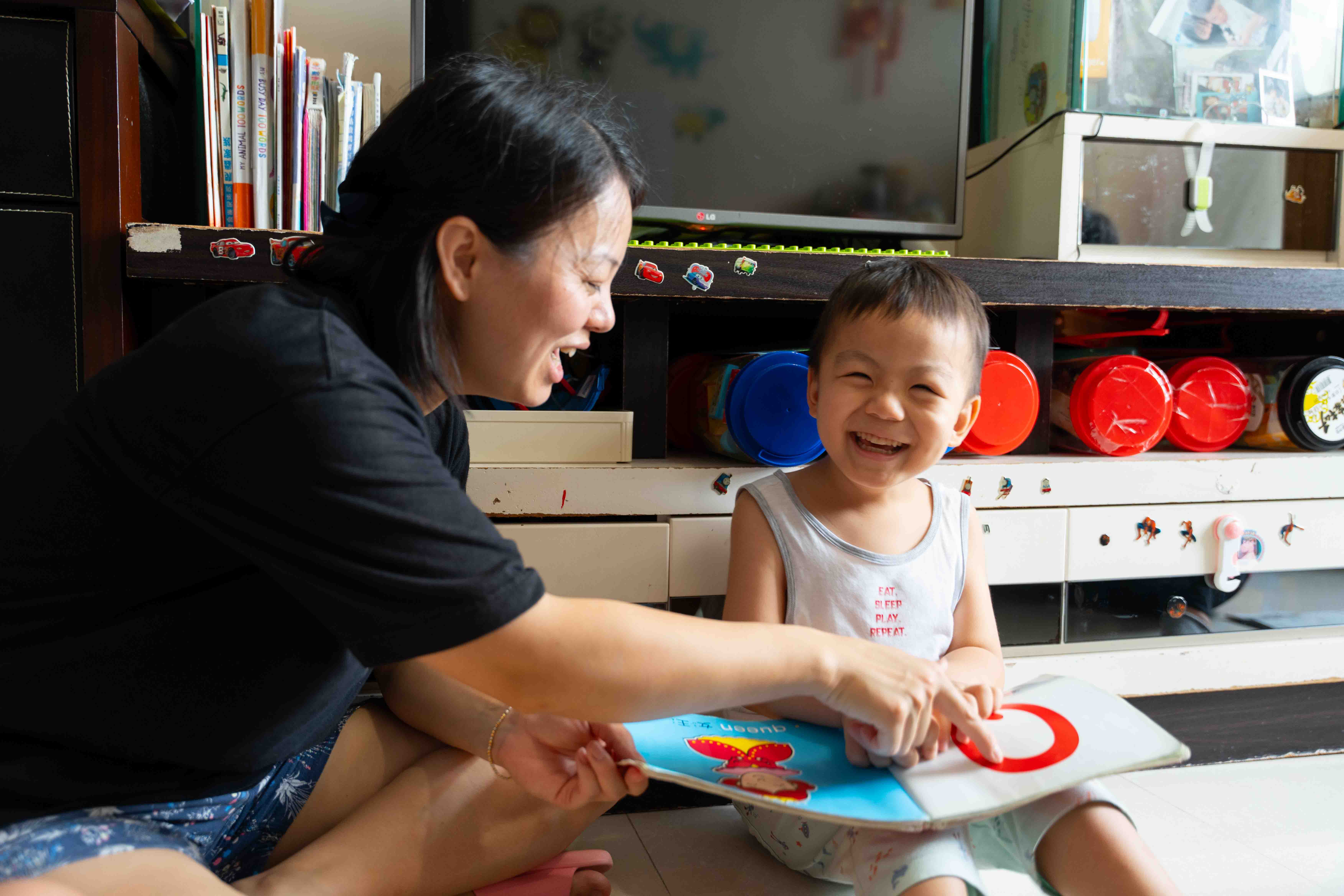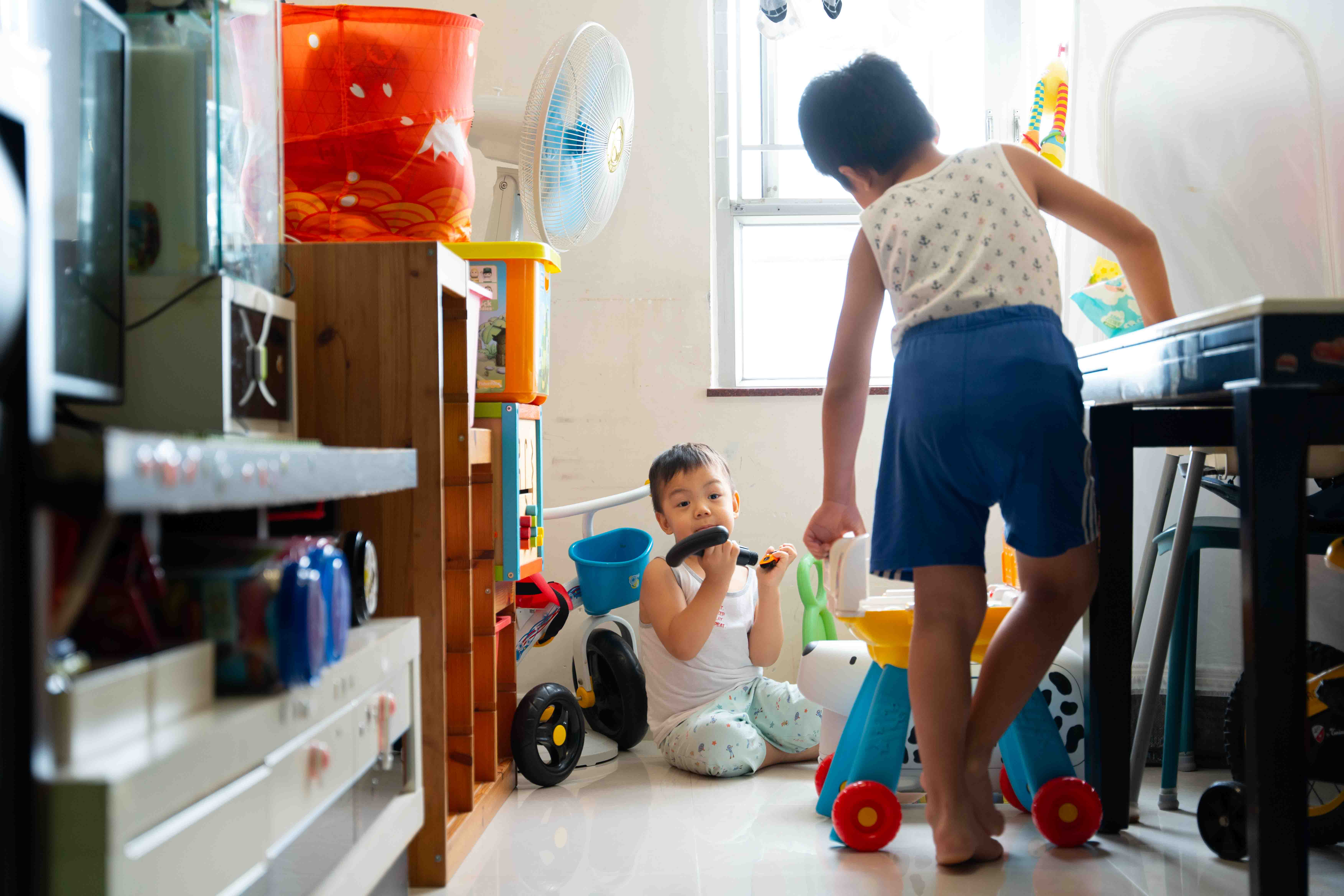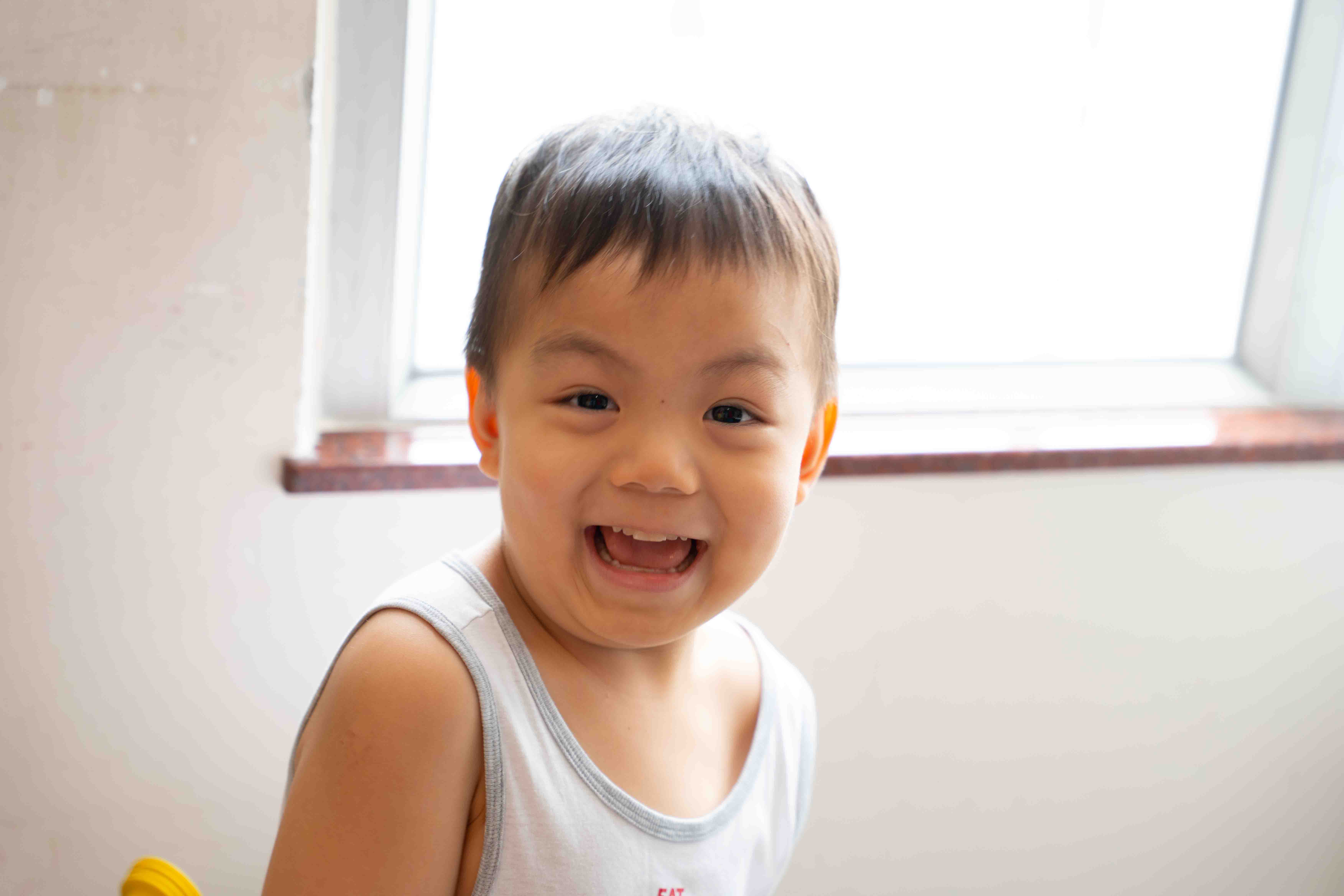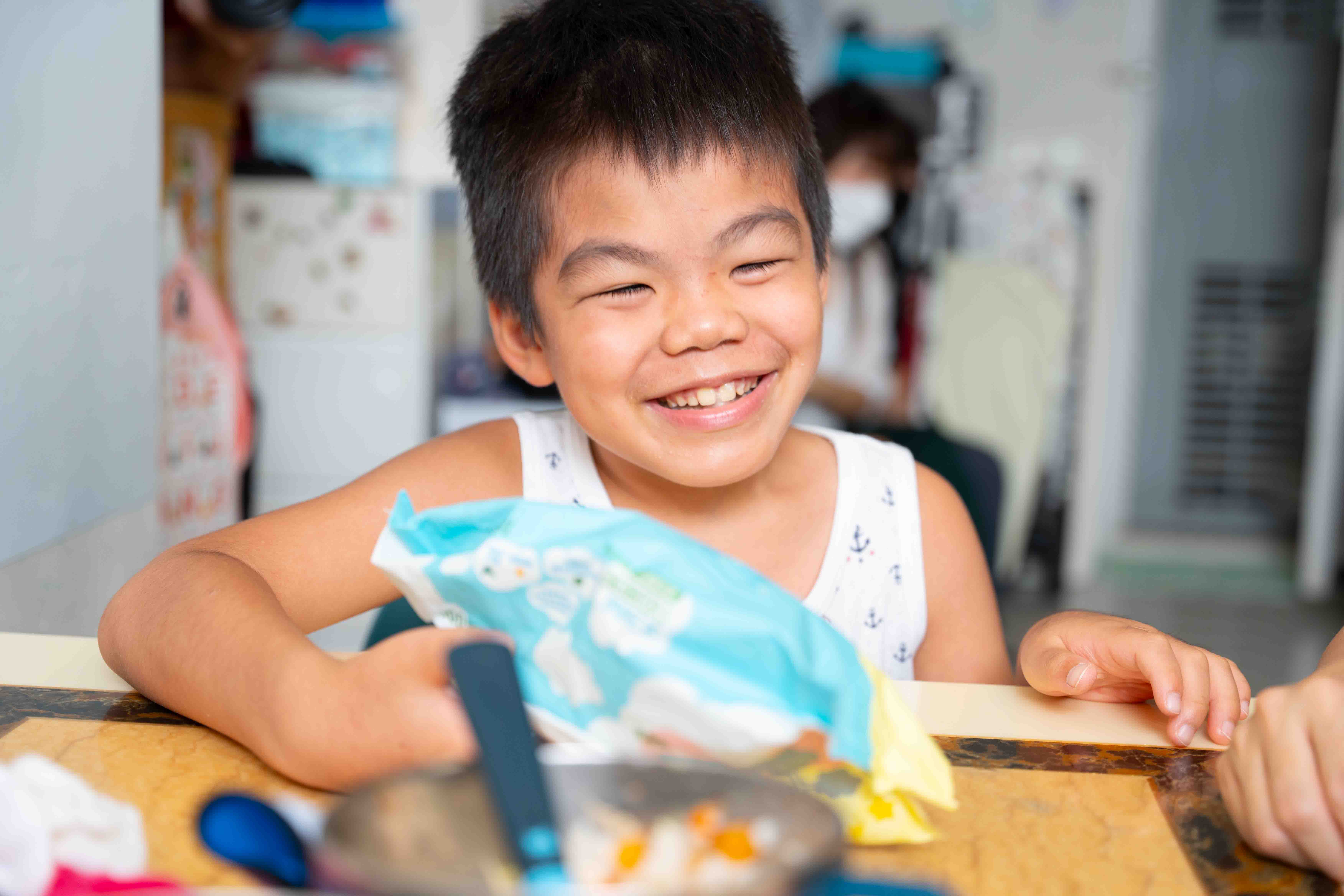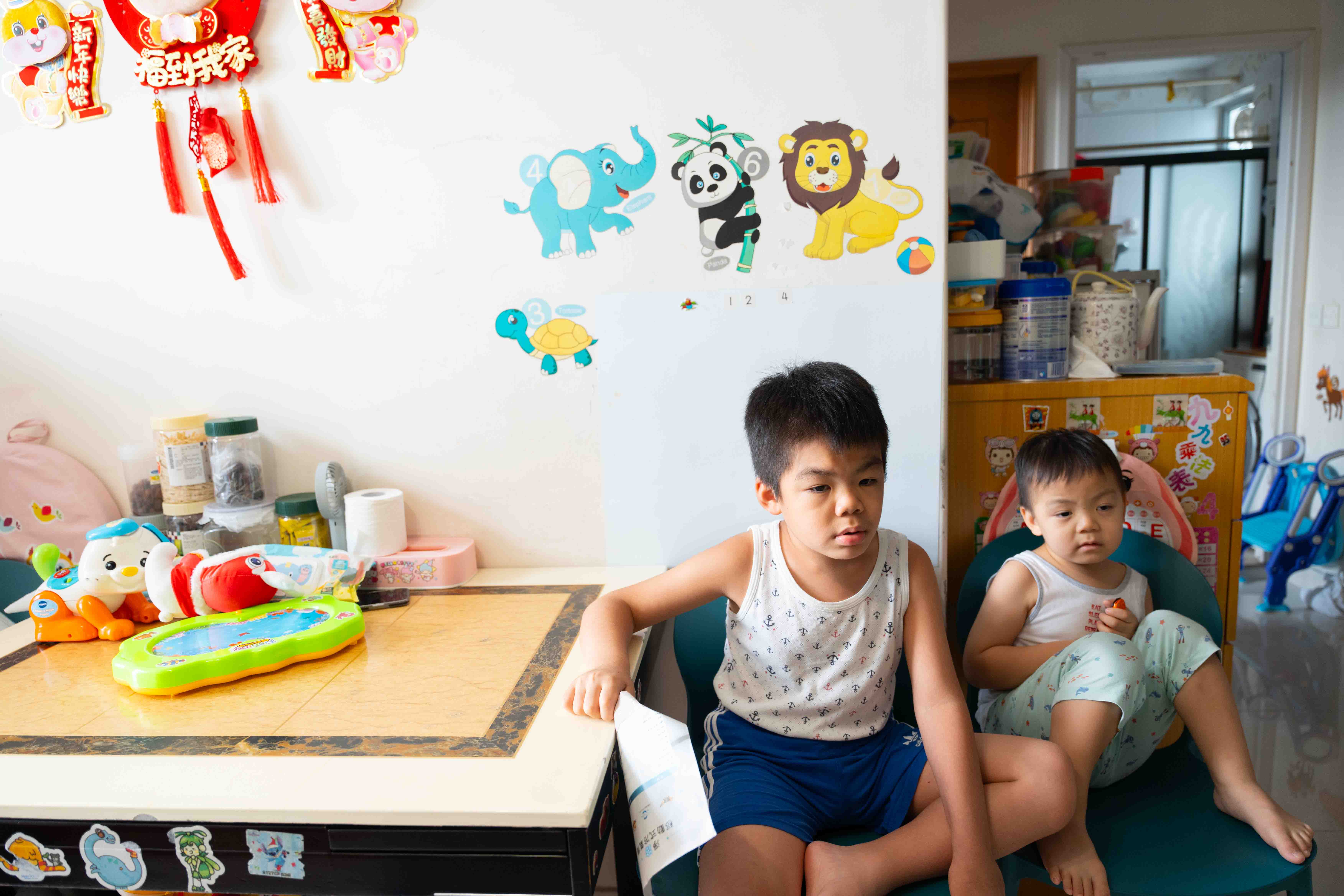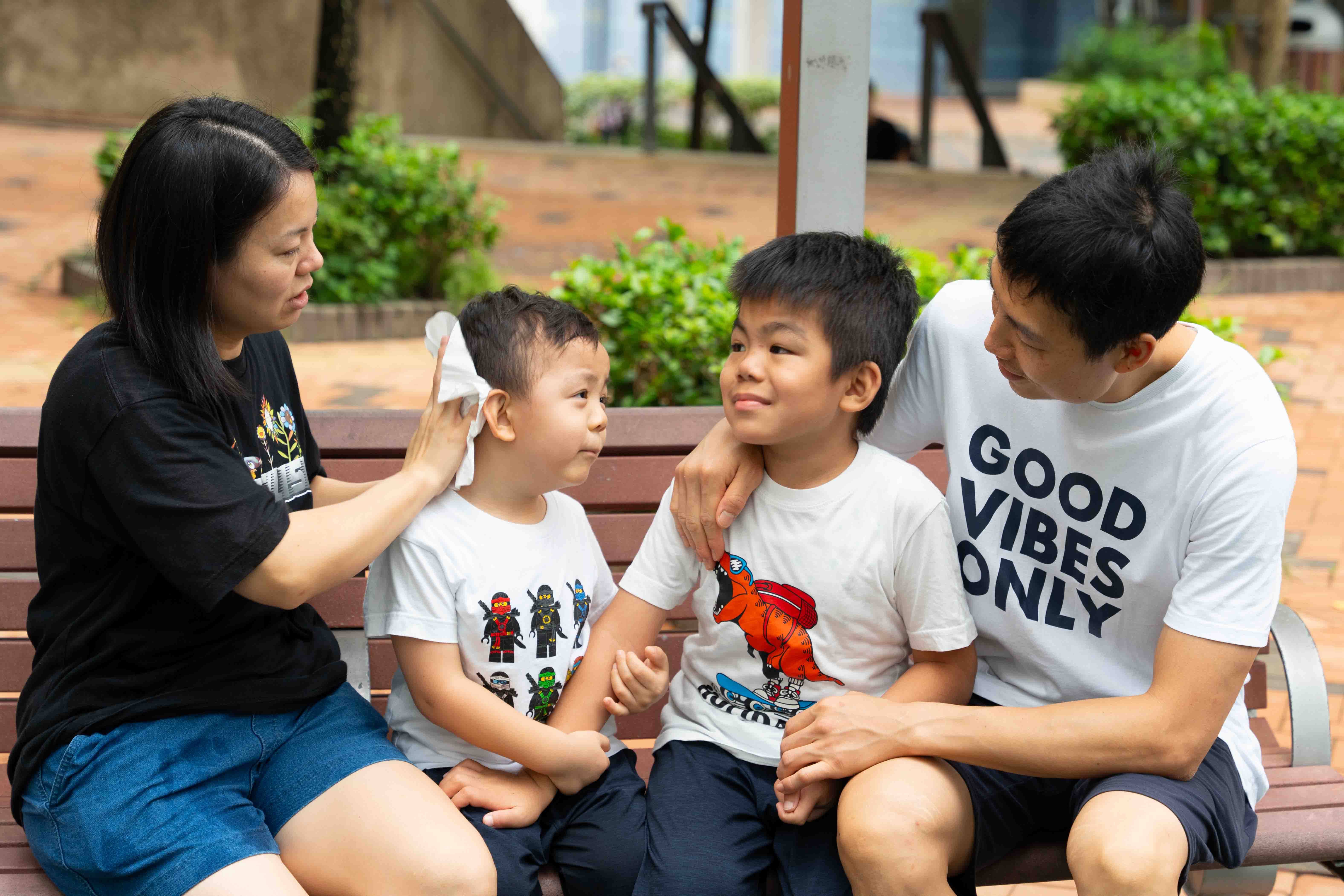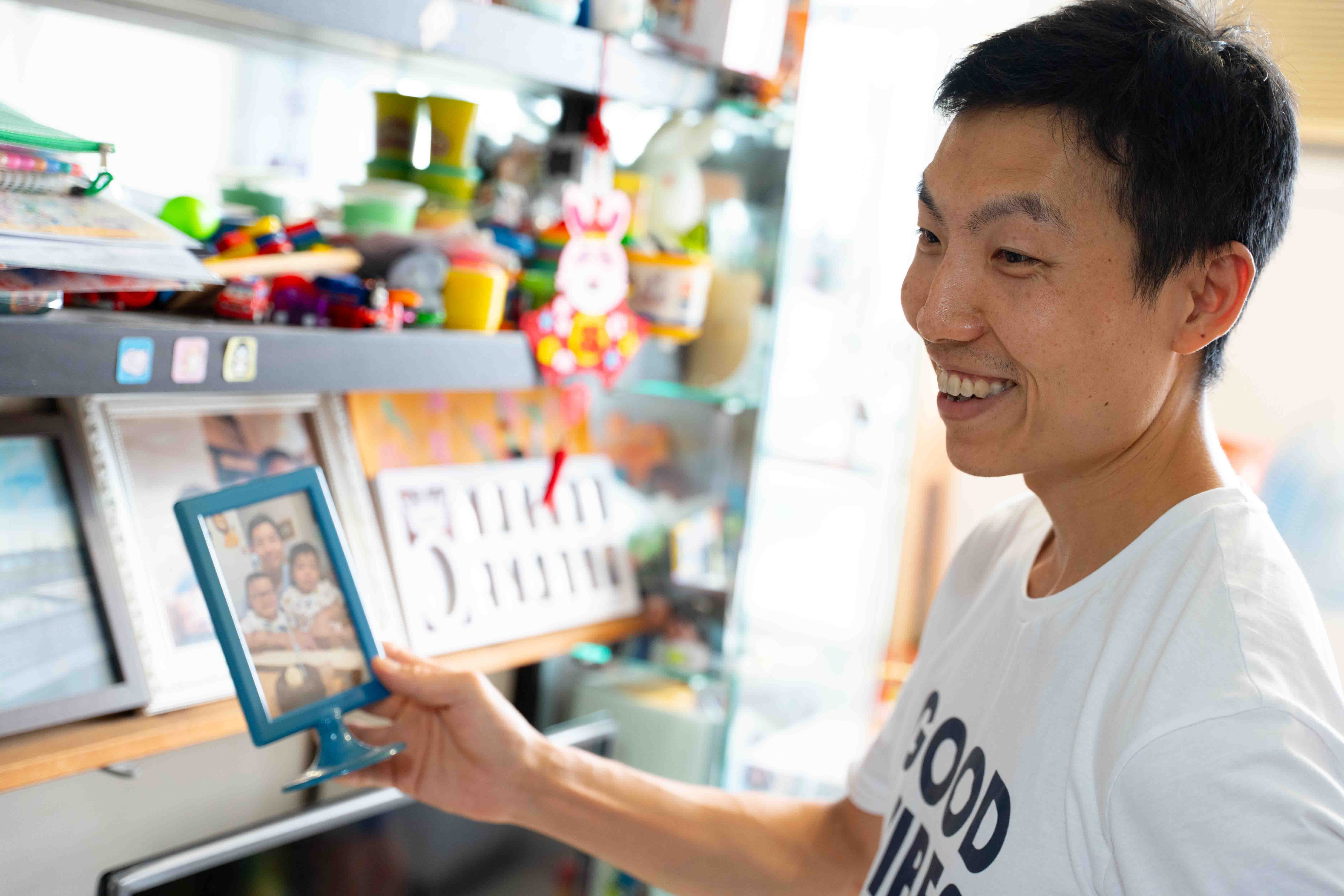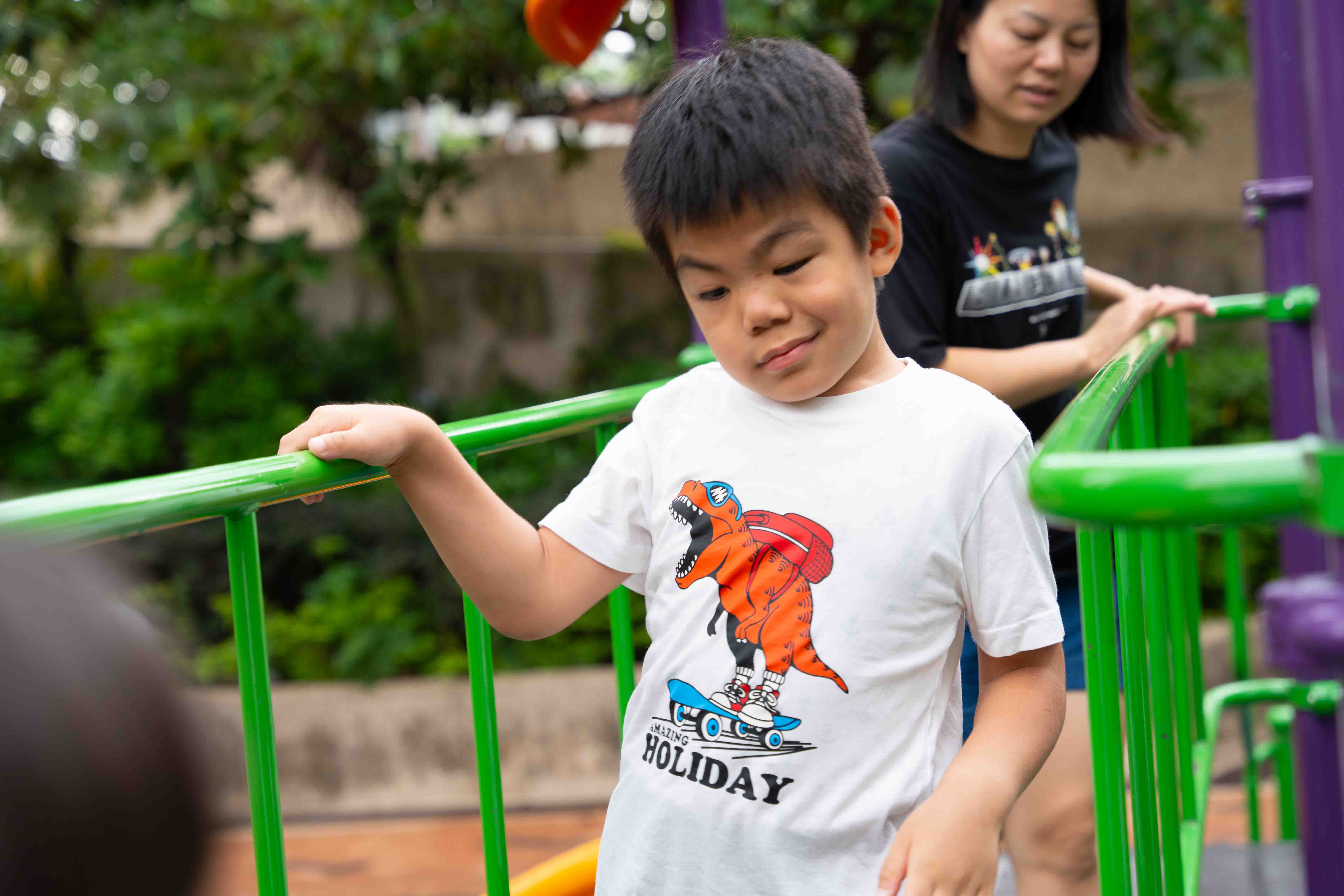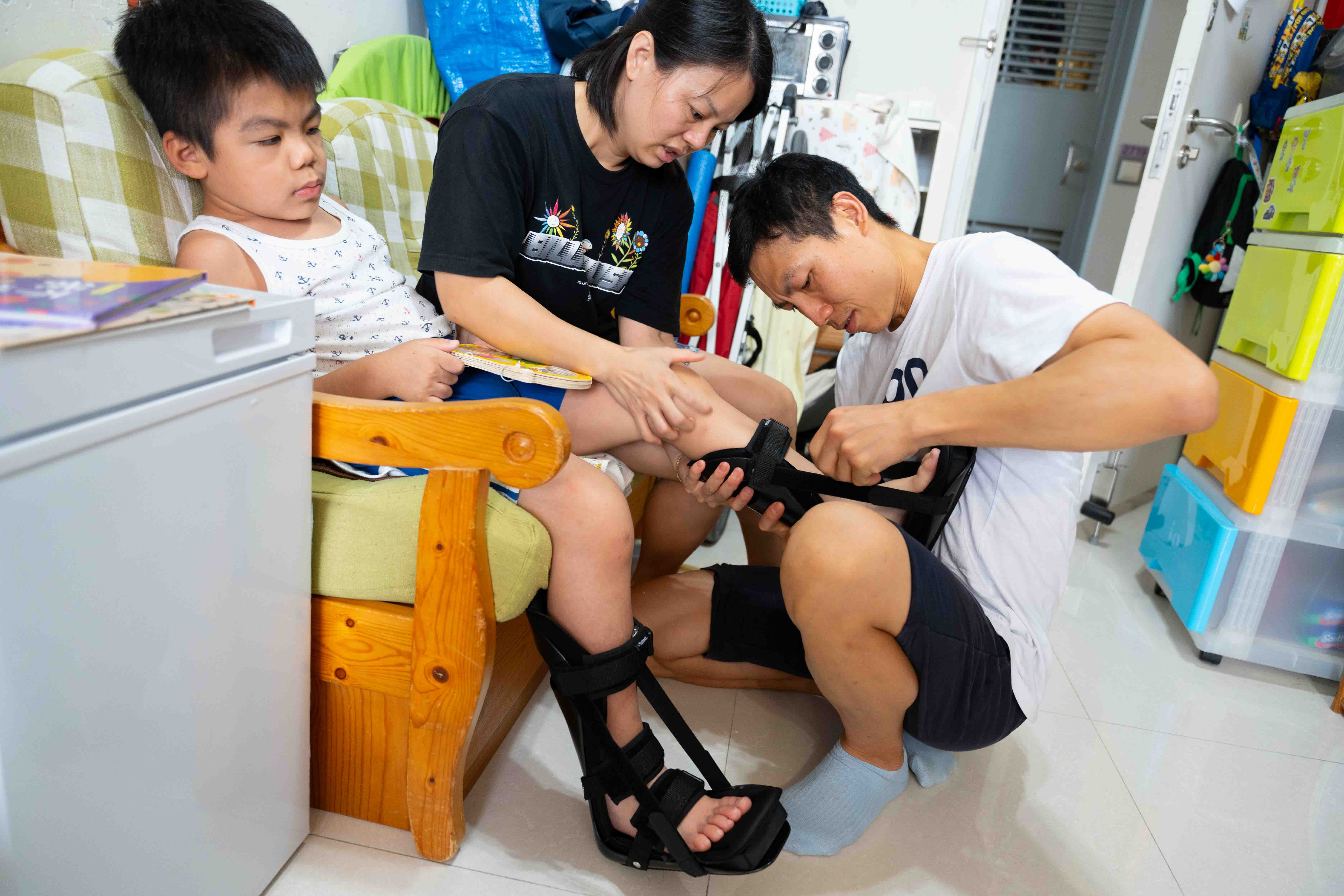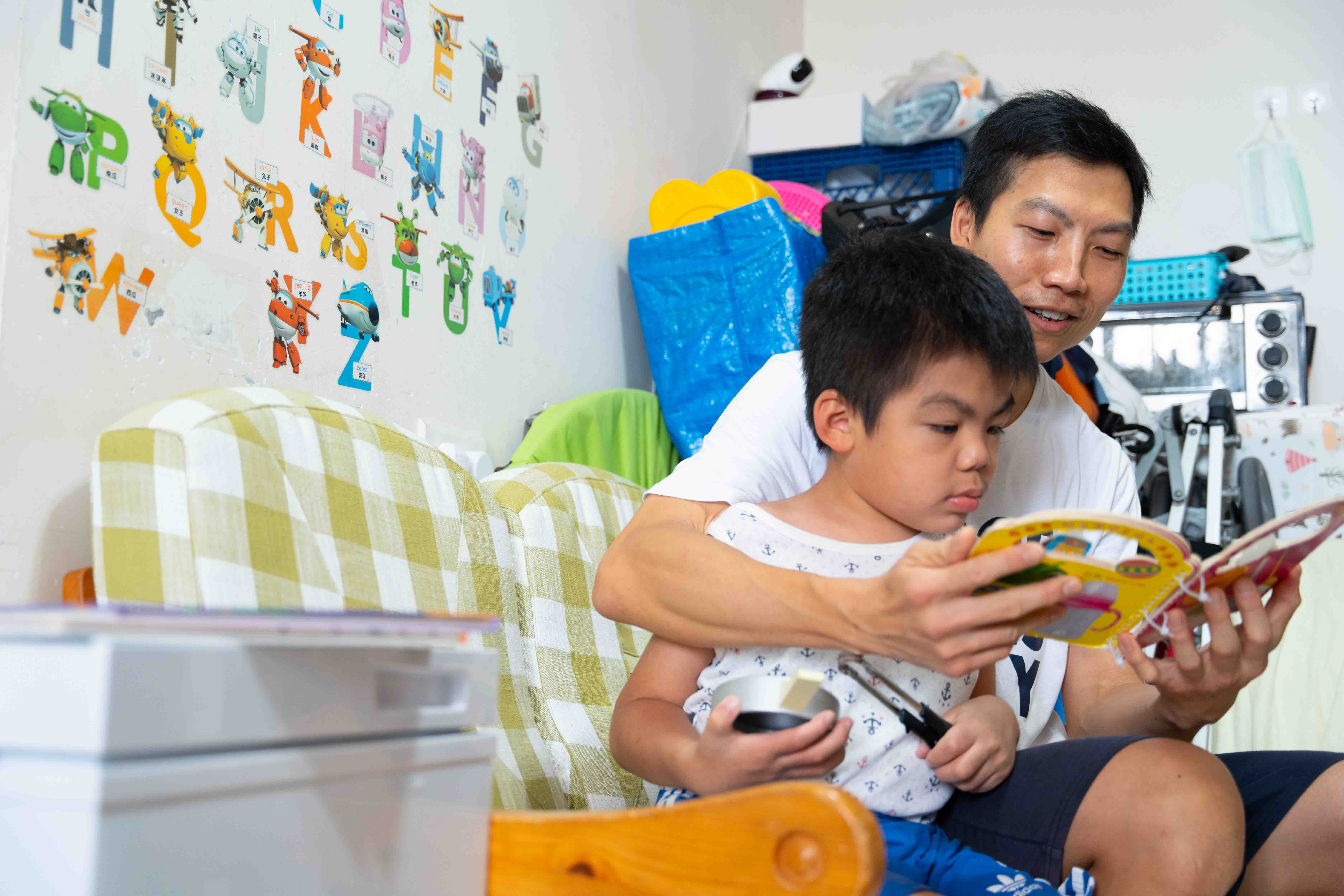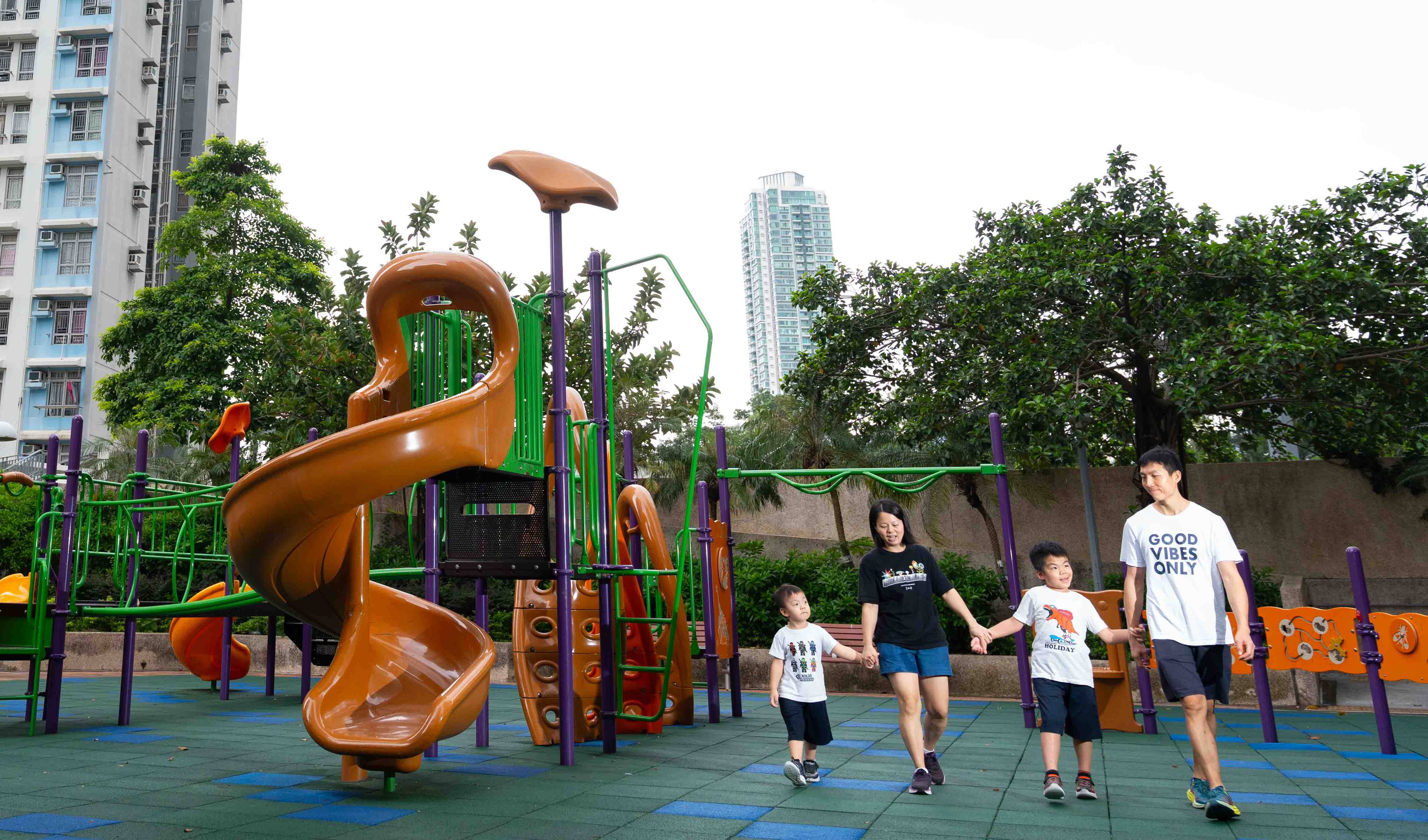One out of every 70,000 people has this disease
Mucopolysaccharidosis 3A is a hereditary congenital disease in which a deficiency in enzymes that break down Mucopolysaccharides leads to a build-up of Mucopolysaccharides in the body, which destroys cells. Symptoms of Mucopolysaccharidosis 3A may not be apparent in infancy, but as more and more cells are destroyed, symptoms will emerge, such as gradual problems with intelligence, internal organs, loss of language and understanding, and eventually the inability to move, with an average life expectancy of about 14 years. According to a study in the UK, the disease affects about one in every 70,000 newborn babies.
Older brother ‘overage’ not eligible for trial treatment
Doctors at the Hong Kong Children's Hospital immediately helped arrange for the younger brother to undergo a stem cell transplant in the UK, an experimental programme for only six children. However, the programme only accepts patients under the age of two, and his older brother was already ‘overage’, but the family was unwilling to give up any hope: “We took him(Wai Cheung) to the UK with us and begged the doctors to help him, but they said his condition was so serious that no matter how much money is spent on helping him, there is no chance he will get better, so it's just a waste of effort”. Their mum choked up as she said that.
The younger brother survived the treatment, and there is hope for his condition
The treatment for his brother, who was lucky enough to receive it, was not easy to go through: he had to stay in the hospital for five weeks while doctors harvested stem cells from his bone marrow to transform them and put them back into his body. ‘After two or three days, he started to feel sick, he was so sick, he was vomiting. His skin and nails were all replaced. His hair had to be basked in the sun and the inside of my mouth felt awful, like you had canker sores all over’.
After that, they went back every six months for follow-ups, which included bone marrow and blood sampling, computer sketching of the whole body and brain, and assessment of physical and mental development, cognitive ability, etc. The parents found that the younger brother's speech and walking skills were better than those of his elder brother at the same age. But because the treatment is still experimental, doctors are not sure if the disease can be cured. “The doctor said that he wants to see Shing Hao grow up and hopes that he won't be like his brother, whose condition deteriorate when he was five or six years old.”
Their mum’s only wish is to hear her elder son say ‘Mummy’ again
The eldest son would look at his mother with a smile whenever she spoke. His mental and physical abilities have deteriorated to infancy, and he is now attending a school for severely mentally handicapped children, where he needs assistance with eating and drinking with a feeding syringe. He falls easily and is unable to urinate and defecate on his own, and has to take medication to alleviate his constipation.
“My son has gone from knowing how to call his mum and dad to not knowing anything at all. He doesn't even know that we are his mum and dad, and any outsider can just drag him away,” said his mum, wiping her tears. “I just want to hear my son call me ‘Mum’ again because I haven't heard it for two or three years.”
“When I play the songs that he has been listening to for a long time, and I see him smiling, that means he has at least a few memories.” However, he no longer knows how to play with toys, “he mostly holds them in his hands and walks around, but he must not put them in his mouth.” Because he often puts things within his reach into his mouth and chews them, and recently he has bite his own finger until it hurts.
“Sometimes when I’m not looking, he eats and dissolves the tissue paper in his mouth, but he doesn't know how to swallow it.” Once, his younger brother was playing with a stapler and got staples all over the floor, “at that time, my older son knew how to pick it up, but he no longer knows how to do it, and he took some of the staples and put them in his mouth. When I came out of the kitchen, I saw him chewing, and found seven or eight staples in his mouth, which he didn't know how to swallow.”
Relying on sleeping pills to fall asleep at a young age
Like many Mucopolysaccharide 3A patients, her elder son also had difficulty sleeping, waking up every night to sit in bed. He sometimes takes sleeping pills prescribed by his doctor to help him sleep. Doctors estimate his life expectancy to be no more than 14 years old, ‘he is already having problems with his water intake, and I think, “How much time does he have to eat normally?” , “I hope that his condition will not deteriorate, and that he won’t be in a worser condition, and that he will not need to have a gastrostomy. Even if he doesn't get better, we hope that he can maintain the condition as it is.” Tears were falling from the mother's eyes.
The younger son is their mum's little support
The little brother then turned into a warm-hearted angel, wiping her tears with his little hands and hugging her. “My younger son is very good at sensing and feeling, he can comfort me when I am not happy, and he told me not to cry and he hugs me. Whenever someone cries, he knows how to comfort them.”
The younger son, who is studying in a special childcare centre, was assessed by the school for his cognitive and linguistic abilities at about the age of two. He is often praised by his teachers for his good behavior and memory and remembers the names of most of the centre staff, teachers and classmates. His mother is very comforted and happy, and when he can name his classmates and his school life, “I would smile to myself”
The younger brother is also full of curiosity and has a thirst for learning. Every time his mum asks a question, the younger brother replies earnestly. His mum hopes to seize this opportunity to instill knowledge into him, “Touch wood, if his condition worsens and his abilities really regress in the future, I hope this knowledge will impress him.”
Parents sharing the burden of care
During the interview, it happened to be the brothers' lunch time, and the mother had to feed the elder brother and take care of the younger brother's eating at the same time. Moreover, the two brothers were very curious and wanted to take part in the filming from time to time, so you can imagine that it was not easy to take care of them 24 hours a day.
The father, who works as an ambulanceman, must work in shifts to save lives in emergencies, which is stressful. However, after work, he helps share the household chores, buys groceries, and takes care of his two sons, and the couple works together to help them wash up: one is responsible for bathing, and the other is responsible for wiping their bodies, to share the pressure on the mother. “When dad opens the door, my eldest son will be so happy, jumping and laughing,” mom said.
The elder brother will also stick to his father and babbles like a toddler when he’s in a good mood. “He will only speak when he is in a good mood, and he will stare when he is not in a good mood. He smiled more when he was in a good mood, and sometimes he only laugh when he was being tickled,’ his father said with a smile whilst tickling Wai Cheung.
If the brothers have to go out, they need their father and mother to come along with them, “each holding a son's hand, because my elder son is not as mobile as he should be, and he can easily fall down.” Sometimes, he would drag strangers or pull on their clothes, scaring passers-by.
The mum said that her elder son, once pushed a child on a slide in the park, causing the parents to complain, “’How do you teach your children as a mum? Your son pushes people’, I kept apologizing and explained that it’s because the child doesn't know it.” Some passersby even blamed her, saying “If your son is like this, you can’t bring him out on the street!”. Even at home, the neighbors complained, “the brothers run around a lot, and sometimes are very loud when they move a chair, and the neighbors downstairs complain about the noise”. The mother was already under a lot of pressure, and the criticism from others made her very stressed.
Mum's pressure skyrockets, and sickness invades her
She said that when she first learnt that her two sons had a rare disease, she stayed at home almost every day for nearly nine months, not wanting to communicate with others and “not wanting to be looked at in a different way”. At night, she could not sleep: she was worried that her older son's health would deteriorate, and that her younger son's development would be the same as her older son's. “I think God is really unfair, why is there something wrong with my own sons?”
In addition, taking care of the two brothers made the mother exhausted and under too much mental pressure. As a result, her thyroid gland developed problems, with the thyroxine readings several times higher than normal, and she had to take medication to control her condition. In addition, the sarcoma in her armpit recurred, and she had to be admitted to hospital to remove it.
Luckily, there are some groups of mums who know about the brothers' situation and provide comfort, support and encouragement. Some parents in the neighborhood also gave toys and books to help each other.
Mum has also learnt to take time to relax after the brothers have gone to bed by watching TV or webcasts. “Whenever I think about something, I watch TV to distract myself. I listen to people's jokes and don't think about my boys’ illnesses for a while,” she said, so that she can relax for a couple of hours. “My husband told me not to think too much, even if I think about it, I can't solve it right away."
Grab the chance to capture the joyful moments of the family of four!
Living under the shadow of rare disease, the family doesn't know when their sons' conditions will decline further, and they can only look forward to the future, as father comforted his wife, “Don't think about it too much, just see how it goes”. And the mum replied, “I don't have any wishes for myself, ...... I just hope my two boys will live longer.” She just wants to take more photos of these moments, to record the time when her older son still doesn't need to be in a wheelchair, and the two brothers can still run and laugh, and still know how to play. 

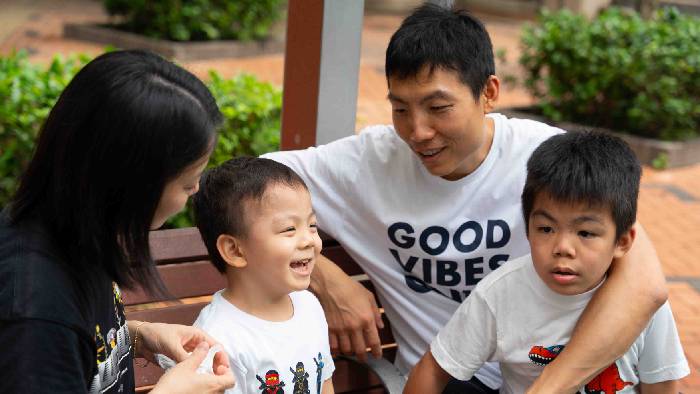
 Anonymous$30.0010/06/2025 - 07:39
Anonymous$30.0010/06/2025 - 07:39 Anonymous$500.0004/26/2025 - 15:32
Anonymous$500.0004/26/2025 - 15:32 Anonymous$500.0003/31/2025 - 17:19
Anonymous$500.0003/31/2025 - 17:19 Anonymous$300.0003/22/2025 - 20:52
Anonymous$300.0003/22/2025 - 20:52 Anonymous$100.0001/31/2025 - 22:51
Anonymous$100.0001/31/2025 - 22:51 Anonymous$1,000.0010/31/2024 - 21:59
Anonymous$1,000.0010/31/2024 - 21:59 Anonymous$100.0010/16/2024 - 02:08
Anonymous$100.0010/16/2024 - 02:08 Anonymous$100.0009/25/2024 - 22:03
Anonymous$100.0009/25/2024 - 22:03 Anonymous$100.0009/09/2024 - 03:15
Anonymous$100.0009/09/2024 - 03:15 Anonymous$4,500.0007/15/2024 - 02:31
Anonymous$4,500.0007/15/2024 - 02:31 Anonymous$30.0007/06/2024 - 19:36
Anonymous$30.0007/06/2024 - 19:36 Anonymous$30.0007/05/2024 - 01:06
Anonymous$30.0007/05/2024 - 01:06 Anonymous$100.0007/02/2024 - 05:59
Anonymous$100.0007/02/2024 - 05:59 Anonymous$25,000.0006/22/2024 - 21:20
Anonymous$25,000.0006/22/2024 - 21:20 Anonymous$500.0006/16/2024 - 09:20
Anonymous$500.0006/16/2024 - 09:20 Anonymous$300.0006/10/2024 - 04:02
Anonymous$300.0006/10/2024 - 04:02 Lifewire Admin$35,300.0009/13/2023 - 14:02
Lifewire Admin$35,300.0009/13/2023 - 14:02




